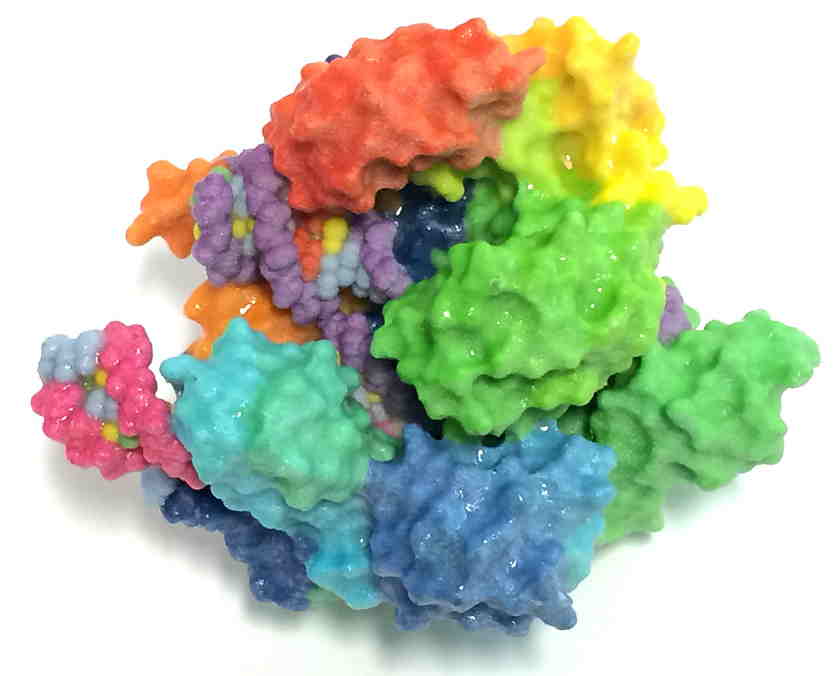First gene-editing treatment injected into the blood reduces toxic protein for up to 1 year
By Jocelyn Kaiser,
Science
| 03. 01. 2022
Cas9 from CRISPR from NIH, CC BY-NC 2.0
The first team to disable a disease gene directly in a person through an infusion of the genome editor CRISPR reported yesterday that levels of the toxic protein made by the gene dropped as much as 93% for up to 1 year. The researchers hope the long-term reduction means patients in the clinical trial will soon show clear improvement in their nerve symptoms and that these benefits will persist for an extended period.
“It is quite remarkable that this first [intravenous] CRISPR-based gene-editing effort has been so successful,” says gene therapy researcher Terence Flotte of the University of Massachusetts Medical School, who was not involved with the study. “This demonstrates great potential for the power of this platform clinically.”
People who have inherited a gene mutation responsible for a condition known as transthyretin (TTR) amyloidosis can develop nerve pain, numbness, and heart failure as adults. The genetic defect results in buildup in nerves and organs of a misfolded version of TTR, a protein made by the liver. Last year, the companies...
Related Articles
Flag of South Africa; design by Frederick Brownell,
image by WikimediaCommons users.
Public domain, via Wikimedia Commons
What is the legal status of heritable human genome editing (HHGE)? In 2020, a comprehensive policy analysis by Baylis, Darnovsky, Hasson, and Krahn documented that more than 70 countries and an international treaty prohibit it, and that no country explicitly permits it. Policies in some countries were non-existent, ambiguous, or subject to possible amendment, but the general rule remained, even after one...
By Bernice Lottering, Gene Online | 11.08.2024
South Africa’s updated health-research ethics guidelines, which now include heritable human genome editing, have sparked concern among scientists. The revisions, made in May but only recently gaining attention, outline protocols for modifying genetic material in sperm, eggs, or embryos—changes that...
By Jim Thomas, Scan the Horizon | 11.19.2024
It’s the wee hours of 2nd November 2024 in Cali, Colombia. In a large UN negotiating hall Colombian Environment Minister Susana Muhamed has slammed down the gavel on a decision that should send a jolt through the AI policy world. ...
By Ned Pagliarulo, BioPharmaDive | 11.05.2024
A medicine built around a more precise form of CRISPR gene editing appeared to work as designed in its first clinical trial test, developer Beam Therapeutics said Tuesday. But the death of a trial participant could renew concerns about an older...




